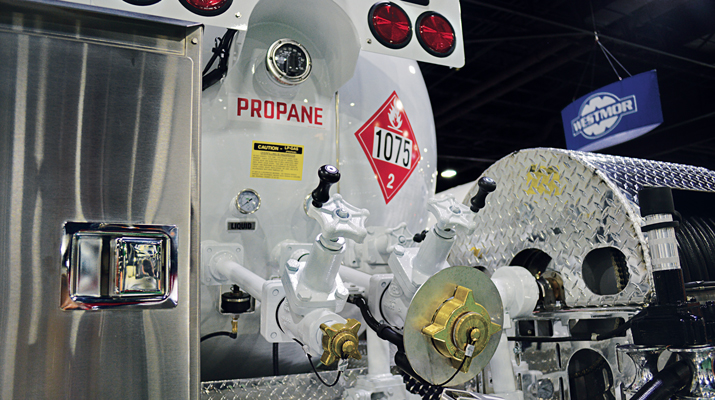Time management: First things first
The third in our series of Habits of Highly Effective Propane Companies is
putting first things first, which is predicated on the belief that highly effective
companies organize and manage around their company’s priorities.
Things that matter most must not be subordinated to things that matter least.
Prioritizing around our principles to do what matters most may be easy to think
about, but difficult to accomplish. So how do we make it happen in our organization,
especially when we’re so used to being in a reactive mode, responding to customer
needs, repairing broken equipment and generally managing a daily list of crises?
Distinguish between urgent and important activities. Many duties are urgent
activities that require immediate attention. Urgent items pressure us, often
taking our total attention.
For example, a phone ringing is urgent, and we immediately answer it. The phone
call may be important, such as when a customer is out of gas or smells an odor.
But the call may also not be important, such as a recorded sales call.
Important items in our businesses, on the other hand, deal with results and
priorities. They contribute to your company’s objectives and mission. If your
leadership team does not already know what your priorities are, it is likely
to focus your company’s efforts on responding to urgent items – at the cost
of neglecting the important needs.
All activities of our propane companies can be categorized as important or
not important and urgent or not urgent. Let’s look at this concept in the form
of the Quadrants I through IV in the chart below.
Quadrant I: Urgent and important
When issues are important and urgent, we have no choice but to respond. Examples
are out-of-gas calls, customers whose furnaces have quit, vehicles in the ditch,
or an employee injury. These all require immediate attention.
Two thoughts of caution: First, those who spend a high percentage of their
time in this quadrant may develop symptoms of stress and burnout. Second, if
your business is consumed with these activities you will not achieve the priority
objectives your team has established.
Quadrant II – Not urgent but important
This quadrant is the difference maker in achieving your priority goals and
objectives. Consider all the activities in your business that fall into this
category. A word of preparation: All the excuses and “urgent but not important”
activities in the world will lay a barrier to preventing you from spending time
here.
Quadrant III: Urgent but not important
Activities here are the areas of waste in your work day, though they often
aren’t easily visible. It is critical for your management team to understand
the difference between Quadrant II and Quadrant III. Urgent does not mean important,
and effective management teams discern the difference. Identify these activities
in your business and drive them out.
Quadrant IV: Not important, not urgent
Most activities in this quadrant are pure time and money wasters in your company.
Generally, we can smoke these out. I am going to assume you have a handle on
this area.
The essence of good time management is shifting the time spent on the urgent
items – those important (Quadrant I) and not important (Quadrant III) into time
spent on not urgent but important priorities (Quadrant II).
A great example in our industry is to convert a will-call delivery (urgent
and important – Quadrant I) into a scheduled delivery (not urgent but important
– Quadrant II). The urgency is gone, but the importance remains. Also, employee
stress is gone, your costs are down and your safety is up.
As you begin to shift your company’s activities, it will become more proactive
and will begin to realize the vision your management team established.















